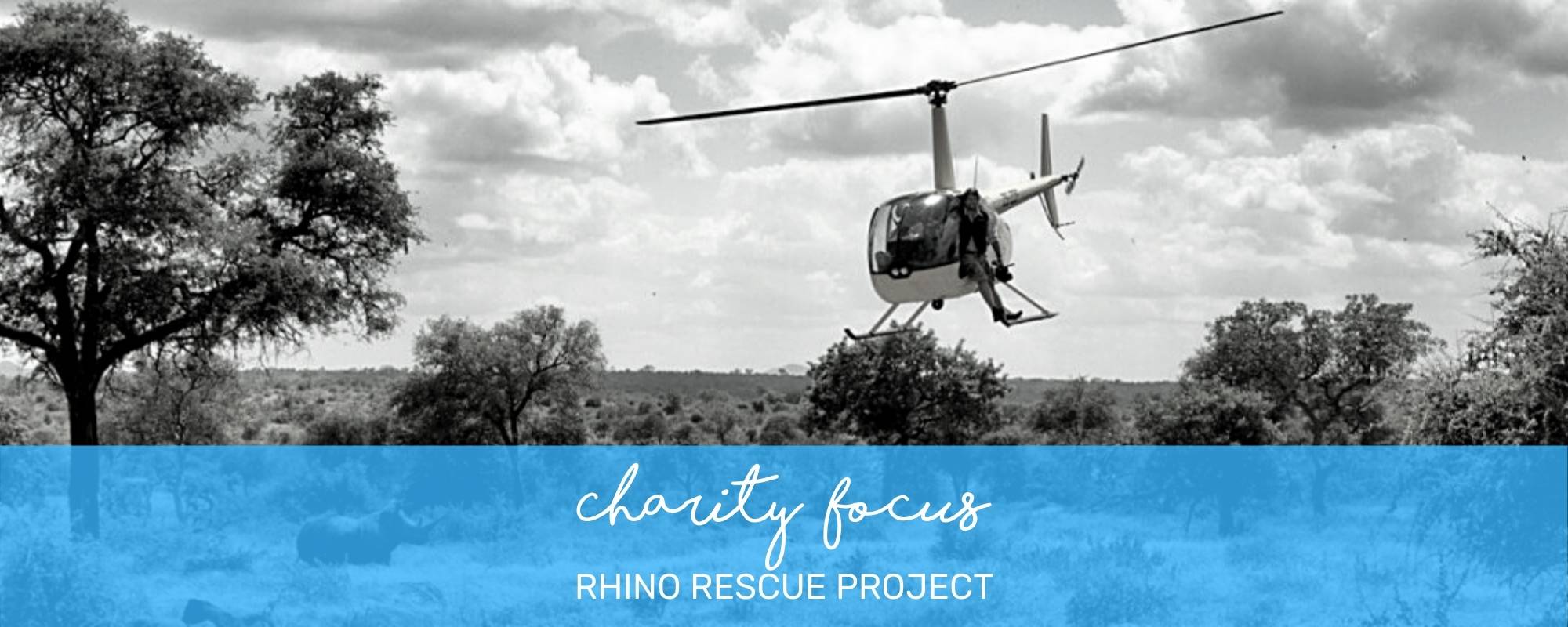
CHARITY FOCUS: RHINO RESCUE PROJECT
Posted on
Rescuing Rhinos One Day At a Time…..
Rhino populations are in danger, and action has to be taken to keep them from going extinct.
One organization, the Rhino Rescue Project, is taking matters into their own hands by devaluing the horns that rhinos are poached for. Although this process may seem complex, it’s one of the most straightforward, safe methods for keeping rhinos alive.
Today, we’re going to walk through the process of devaluing rhino horns, as well as the way it will impact rhino populations positively for years to come!
“Do you ever wonder why saving rhinos actually matters? Read on to understand why organizations like Rhino Rescue Project are SO important!”
The Why...
The Rhino Rescue Project began in 2010 in response to a poaching incident close to Johannesburg. From that incident, a group of scientists gathered together to brainstorm solutions to prevent and/or deter these rhino deaths.
Although they considered traditional dehorning, where a rhino’s horn is ground away manually, they knew that this could negatively impact tourism and the economic stability of surrounding areas.
Finally, they found an excellent alternative - they would simply treat the horns to make them worthless to poachers.

Poachers hunt rhinos specifically for their horns, which are then sold and consumed for their believed healing properties, but by treating the horns with a solution that made them inedible for humans, there would be no point for poachers to kill the animals.

The Process….
With a plan in mind, the team set out to make it a reality.
In under a year, the Rhino Rescue Project had created a process that would allow them to safely treat rhino horns. The process begins with sedating the rhino, which makes the process much safer for the animal and the veterinarians working on the animal. Then, the horn is injected with ectoparasiticides and an indelible dye.
The ectoparasiticides are completely safe for the rhino, as well as vultures and ox-peckers, but it is toxic for humans.
Then, to ensure that the poachers know the rhino has been treated, they use an indelible dye that marks the rhino. In addition to marking the rhino, the dye is recognizable even if the horn is ground into a fine dust. Then, the rhino is awoken, and they return to their normal lives with no side effects. This treatment is able to last for around four years.

The Outlook…..
From this treatment, the RRP team has seen a significant decline in the number of rhino deaths by poaching.
Although this method isn’t a solution, it is a great step in the right direction. By taking away the motivation to poach rhinos, the RRP team is buying the species time as they find new ways to protect these wonderful animals!

Rhino Rescue Project Charity Bracelet
You can also get involved and show your support to the Rhino Rescue Project by purchasing a Wild In Africa Rhino Rescue Project Bracelet.
With each purchase of the Rhino Rescue Project bracelets, not only will you receive a meaningful and beautiful piece of jewelry, but you will also play an important role in saving endangered rhino populations.
This variscite bracelet with a rhino charm is the perfect color combination for its charity, the Rhino Rescue Project and the materials are thought to promote peace and calm.
50% of the purchase price is donated directly to the Rhino Rescue Project!

Written by Taylor Plate
Don’t miss out on future posts so be sure to sign up for our Wild Tribe (scroll below to sign up).
New products and discounts first!
RETAIL & STUDIO
The Farm House, R527
Hoedspruit LP South Africa
Whatsapp: +27 79 225 4988
contact@wildinafrica.store
. . . . . . . . .
HEAD OFFICE
65/2 Arbor Ave, Robina
QLD 4226 Australia

